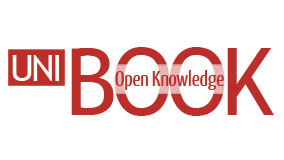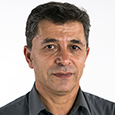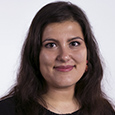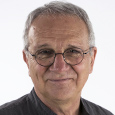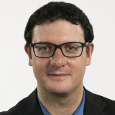Course description
Every day education, research and academic cooperation move around the world thousands of students, researchers, professors and staff to a variety of destinations and for a variety of purposes.
Promoting students and staff safety during mobility programs is up on the universities’ agendas. Building institutional relations with reliable partners and design institutional security plans is crucial but not exhaustive. Individual preparation is also essential.
The “Personal Risk Reduction In Insecure Contexts” course goal is raising awareness about personal safety and security and promoting safe behaviors and personal strategies fitting with
specific travel contexts.
The academic travel is often used as an example, nevertheless this course potentially has a wide target involving a diversified range of people and kinds of journeys. Almost all the modules in fact may be applicable to many types of travel, not only academic.
Moreover, even though the focus is mainly on insecure contexts, the contents addressed by the course may be useful for all kind of destinations.
Through the help of professors and experts from International Relations office you will be guided to get a clear picture of your journey and prepare your mobility for the best.
During the course you will have an overview of the arrangements to take care of during the organization of a trip and during the trip itself.
Certificate of Accomplishment
The Certificate of Accomplishment will be released to anyone who successfully completed the course by answering correctly to at least 60% of the questions by the end of the edition.
You will be able to download the Certificate of Accomplishment directly on "Progress" tab inside the course.
Once you have successfully passed the course, you can request the Certificate of Accomplishment without waiting for the end of the edition.
The Certificate of Accomplishment does not confer any academic credit, grade or degree.
Course Faculty
Alessandra Scagliarini
Alessandra Scagliarini is Vice-Rector for International Relations (2015-2021) of the University of Bologna. Under this role she coordinates a team of 5 Geographic areas’ delegates and she is personally in charge of the Mediterranean region, Africa and China. She is Full Professor at the Department of Veterinary Medical Sciences of the University of Bologna where she has teaching assignments as part of undergraduate courses and postgraduate degrees such as: Veterinary Virology, practical training on large animals transmissible diseases and Biomolecular Methods Applied to communicable diseases. She is involved as coordinator in research projects related to the pathology and control of infectious diseases in animals in collaboration with different national and international research centers. She was a member of PhD evaluation commissions at the College of Veterinary Medicine (Edimburgh, UK), Faculty of Veterinary Medicine Universiteit (Gent, Belgium), Faculty of Veterinary Medicine (Pretoria, South Africa). In 2009 she joined the Ministry of University and Research (MIUR) working group on technological districts, technological platforms and infrastructures and in 2013. From 2006 she has been involved in the activities of the European Technology Platform ETPGAH (European Technological Platform on Global Animal Health) and from 2007 she has been a member of the Organising Committee of the Italian Technology Platform on Global Animal Health (ITPGAH).
Marco Balboni
Marco Balboni is Professor of European Union and International Law at the University of Bologna, Coordinator of the Degree program in International Relations and Diplomatic Affairs and member of the Unibo’s equality body – CUG. His research interests include International refugee Law and EU migration Law, International and EU non-discrimination Law and the role of the EU in promoting and protecting human rights worldwide. Among other activities, he is member of the Editorial board of Diritto, Immigrazione, Cittadinanza, co-director of the Unibo’s multidisciplinary research network on gender studies Almagender – IRT, and has been Senior legal adviser for the EU Fundamental Rights Agency.
Alessandra Bonoli
Alessandra Bonoli is Associate Professor in Raw Material Engineering and Resources and Recycling at the Department of Civil, Chemical, Environment and Material Engineering, University of Bologna. She has taught a number of bachelor, master, international master and PHD classes and she has authored more than 150 scientific papers. Her research themes are mainly related with Sustainability, Life Cycle Assessment and Circular Economy principles applications into several environmental engineering topics as raw material treatment, water supply, solid waste and wastewater recycling, urban green technologies. A specific stream of research concerns the application of all these researches and studies in terms of appropriate technologies in cooperation activities for emerging and developing countries. For this purpose, she created the Department Research Center for international COoperation and Development on Engineering, Environment and Emergency (CODE^3) for the international cooperation in Environmental Engineering. She founded also and coordinates a new research group named “Engineering of Transition” developing researches oriented to build a sustainable world by environmental, social and economic point of view, by saving and valorizing natural resources, implementing urban resilience and renewable resources utilization and promoting sustainability education.
Rabih Chattat
MD, PhD, Associate Professor of clinical Psychology with main interest in aging and neurodegenerative disorders since 1998; he has been involved in research in the field of psychosocial care. On this topic he had been partner in national and European (FP7, AAL, JPND) funded projects regarding aging, dementia and interventions. Since 2011 he is appointed by the Rector of the University of Bologna as delegate for students with disabilities and students with learning disorders. He had been scientific coordinators of EADHE, a LLP EU project, regarding European action on disability in higher education and partner in the SWING project, a Tempus project, with the aim to implement sustainable policies in the 4 Universities of Morocco and Egypt to enable disabled students to have equal access to higher education.
Carmelo Danisi
After a PhD scholarship (Unige, Italy) and a post-doc fellowship (Unibo, Italy) in Human Rights Law, he has been Adjunct Professor of International Law at Unibo, Research Fellow at Sussex University and Visiting Fellow at the Australian National University – College of Law (Endeavour Research Fellowship). He is author of a number of publications, especially in the field of human rights, minorities’ rights, EU law on non-discrimination and migration/international protection. In 2015 he published his first book Tutela dei diritti umani, non discriminazione e orientamento sessuale, Editoriale scientifica, as part of the Collection of studies “La ricerca del diritto nella Comunità internazionale”. He has been involved in several research projects concerning EU and international law: among others, the SOGICA ‘ERC’ project on the international protection of vulnerable groups; legal analysis for the EU Agency for Fundamental Rights; the Western Sahara and human rights database; national researches on discrimination and the contrast of gender-based violence.
Maria Pia Fantini
Maria Pia Fantini MD, Specialist in Pediatrics and Clinical Immunology. Full Professor in Public Health and Preventive Medicine at Alma Mater Studiorum, University of Bologna, Bologna Medical School. Head of Residency program in Public Health and Preventive Medicine at Alma Mater Studiorum, University of Bologna. Director of First Cycle Degree in Public Health Promoter.
Magda Ialonardi
Magda Ialonardi MD, graduated in Medicine and Surgery at Alma Mater Studiorum, University of Bologna. Resident doctor in Public Health and Preventive Medicine at Alma Mater Studiorum, University of Bologna.
Livia Mercatelli
Livia Mercatelli graduated at the University of Bologna in International Relations and Diplomatic sciences in 2007 with a thesis on South-South (China in Africa) cooperation for development. She works as international relations officer at the International Relations Division of the University of Bologna since 2008 and since then she has always been dealing with the management of external funding for higher education cooperation and academic exchanges realized under the Erasmus Mundus Action 2 programme with extra-EU countries. Particularly she managed projects in Latin America, South Africa, North Africa, the Western Balkans and India. She is currently in charge of following the academic mobility of students and staff, the relations and cooperation projects the University of Bologna develops with partners in the Sub-Saharan Africa under different frameworks.
Licia Proserpio
Licia Proserpio graduated at the University of Bologna in Cultural Anthropology and Ethnology and at Högskolan Dalarna in African Studies. She works at the International Relations Division of the University of Bologna in the Eastern Neighbouring Countries, Russia, Asia, Oceania and North America Unit. She is involved in the development and management of international projects under different frameworks: Erasmus + (Key Action 1 and 2), EuropeAid, Erasmus Mundus.
Angelo Stefanini
Dr. Angelo Stefanini (MD, MPH, DTM&H) is a medical doctor who worked for several years in rural hospitals of Sub-Saharan African and in the Middle East. In particular, he was the head of the World Health Organization (2002) in the occupied Palestinian territories where (2008 to 2011) he worked as coordinator of Italian-funded health programmes. In 2007 he led an international team in a EU-funded health development project in Syria. He has taught at the universities of Leeds – UK (1988-1994), Makerere – Uganda (1994-1996) and Bologna – Italy (with interposed leaves of absence, 1997-2015) where in 2006 he established the Centre for International Health. He retired in 2015 and is currently volunteering with the NGO Palestinian Children Relief Fund (PCRF).
Francesca Valente
Francesca Valente graduated at the University of Bologna in International Relations and Diplomatic sciences in 2005 and in Cultural Anthropology in 2010. She got her PhD in diversity Management and governance at the Karl Franzen University of Graz in 2016. She works as international relations officer at the university of Bologna since 2004 and since then she has always been dealing with the management of the European – funded mobility schemes, such as LLP/Erasmus study, Erasmus Mundus Action 2 and Erasmus+ mobility for study. She is currently in charge of the Study Mobility Office within the “Europe” Unit of the International Relations Division of the University of Bologna.
Paolo Zagaglia
Paolo Zagaglia is an assistant professor of economic policy at the Department of Cultural Heritage, Ravenna campus, Università di Ravenna. He holds a Ph.D. in economics from Stockholm University. He has previously worked at the Central Bank of Sweden, Bank of Finland, European Central bank and Bank of England. He has held visiting and consulting positions on matters of economic policy both in public and the private sector in several countries around the world.

